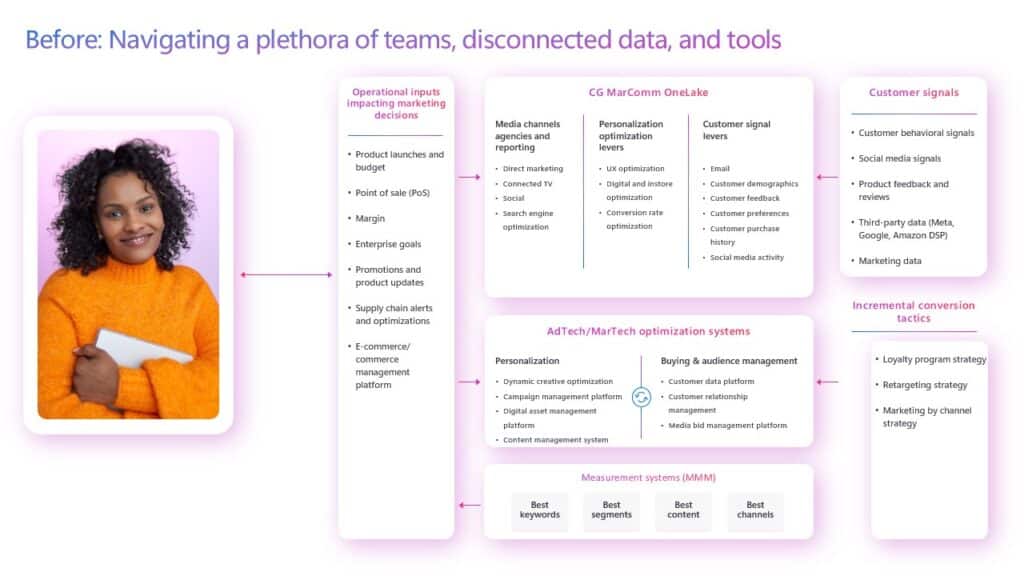Notizie per Categorie
Articoli Recenti
- Explore practical best practices to secure your data with Microsoft Purview 25 Aprile 2025
- New whitepaper outlines the taxonomy of failure modes in AI agents 24 Aprile 2025
- Understanding the threat landscape for Kubernetes and containerized assets 23 Aprile 2025
- [Launched] Generally Available: Instance Mix for Virtual Machine Scale Sets 22 Aprile 2025
- Microsoft’s AI vision shines at MWC 2025 in Barcelona 22 Aprile 2025
- [Launched] Generally Available: Announcing the Next generation Azure Data Box Devices 22 Aprile 2025
- [Launched] Generally Available: Cross-Region Data Transfer Capability in Azure Data Box Devices 21 Aprile 2025
- [Launched] Generally Available: Azure Ultra Disk Storage is now available in Spain Central 21 Aprile 2025
- [Launched] Generally Available: Azure Firewall resource specific log tables get Azure Monitor Basic plan support 21 Aprile 2025
- Hannover Messe 2025: Microsoft puts industrial AI to work 21 Aprile 2025
Harnessing AI to supercharge personalized marketing at scale
The generative AI hype cycle is at a peak, promising unprecedented benefits at warp speed across industries. Marketers from small to global organizations are on the forefront, leveraging generative AI to create campaigns that deliver hyper-personalized experiences for their customers. One example of a successful implementation was featured at the Oct 16, 2024 Sitecore Symposium. “As part of our long-standing, strategic relationship with Sitecore, we’ve collaborated closely with Nestlé and other enterprise customers to deliver entirely new AI capabilities to marketers,” said Shelley Bransten, Corporate Vice President, Global Industry Solutions at Microsoft.1 The rewards are clear.
But what if your organization is currently still in pilot mode? The challenge with pilots is that they don’t drive consequential change in the bottom line, and it’s a struggle to democratize learnings. With three in five chief marketing officers (CMOs) driving funding behind investment for generative AI,2 there’s pressure to prove return on investment (ROI) and value from AI investment amidst numerous pilots.

As we transition from hype to reality, brands are shifting from basic generative AI applications like content and tagline generation and to evaluating comprehensive business processes that leverage generative AI to accelerate timelines, unlock more value, and drive increased growth. Marketers are leading the way in leveraging AI as a powerful co-creator at scale.
Let’s evaluate age-old challenges and lengthy processes for marketers.
First, identify key areas where AI creates significant impact in a 6 to 18 month period:
- Increased investment in a multitude of omnichannel marketing solutions and partners has led to fragmented customer profiles and data. Siloed analytics, reports, and data make it difficult to create a unified view of the customers, hindering segmentation efforts to personalize each interaction with customers
- Isolated business analysis tools and cross-media performance and recommendation data across partners and platforms make it difficult to develop real-time or predictive media planning strategies. Marketers struggle optimizing spending and maximizing return on ad spend (ROAS).
- Convoluted naming conventions, metadata tagging, and static reporting from disconnected create “tech debt.” This debt makes it difficult to spot patterns in data such as best keywords, segments, content, and channels.
Powerful personalization at scale with AI
How can AI create more personalized touchpoints across a shopper journey?
Common “personalization” mishaps that decrease loyalty: A customer browses running shoes online but buys a pair in-store, later they receive a generic email offering discounts on the shoes they just purchased and unrelated accessories.
The future process of personalization accelerated with AI: The customers’ needs are anticipated before they even ask. A customer now browses for running shoes online, purchases them in-store, and receives a personalized upsell promotion to “complete the look” with complimentary products. The brand then sends a promotion the following year to upgrade the shoes to a new pair.
Making AI-powered personalization “real”
- Collaboration is the heartbeat of innovation: Personalization at scale should be a joint priority for business and technical stakeholders. Together, executives collaborate over a single “source of truth” for data and ensure a dynamic flywheel of data is in place, updating customer signals and operational data (supply chain, promotions, product, point of sale [POS]) in real time. Consistent updating and scrubbing of the data sources ensure conversational agents used by marketers, like Microsoft Copilot, are reasoning over accurate, quality data and keeps data secure.
- Simultaneously, marketers apply “AI as a co-creator strategy” to the end to end (E2E) process of creating, planning, executing, and analyzing campaigns adopting, training, and utilizing conversational agents.
But, how?
Collaboration between IT and the CMO: Preparing the data estate to accelerate personalization at scale, stakeholders can leverage Microsoft Fabric, a unified data platform with compatibility across multiple cloud platforms, allows marketers to access and analyze up-to-date data directly within the governance boundary. Fabric offers intelligent data analytics as a service, allowing brands to build custom reports in Power BI without having to export data, ensuring greater security. Marketers can spend less time consolidating reports from multiple groups, partners, and internal resources and instead simply ask questions of their data.
Create a comprehensive view of the customer and their journey with a customer data platform like Dynamics 365 Customer Insights, connected to Fabric, offering better segmentation, insight generation, and campaign activation tools for data-driven optimization driving ROAS, growth, and elevated customer experiences. With both Fabric and Dynamics 365 Customer insights, marketers leverage advanced analytics and AI capabilities to gain deeper insights.
Marketers can then leverage Microsoft 365 Copilot as an AI “co-creator” to enhance productivity and collaboration across marketing and agencies, reimagining the entire content creation and activation process, from creative brief development to real-time brainstorming with agencies.


Embrace the future of marketing with AI
As brands struggle to make the promise of generative AI and its benefits “real,” cross-collaboration across both data and marketing stakeholders becomes more critical than ever before. By overcoming the challenges of disparate data, marketers create more effective campaigns that drive better ROI. The future of marketing about more than leveraging generative AI as a content creator, but a co-creator grounded quality, accurate, and up to date in company data and supercharged by large language models (LLMs). These E2E strategies will turn marketing strategies from reactive to predictive. Ready to begin the journey to personalization at scale? Learn more about how Microsoft can help.
Get in touch with a Microsoft representative at any time for more information on the ways Microsoft can help your retail business achieve more with insightful, intuitive AI tools. We are eager to help you innovate and achieve your goals.
Learn more
- Microsoft’s responsible AI principles
- Generative AI will revolutionize Revenue Growth Management
- “What’s my generative AI strategy?” Microsoft is helping consumer goods brand marketers embrace the era of AI
- Generative AI transforms business processes
2How CMOs are shaping their GenAI Future, BCG 2024.
The post Harnessing AI to supercharge personalized marketing at scale appeared first on Microsoft Industry Blogs.
Source: Microsoft Industry Blog
